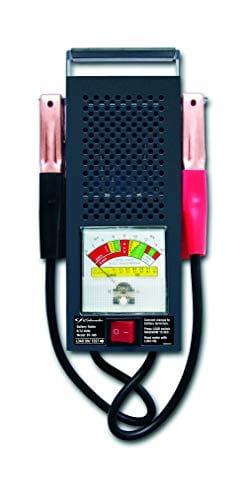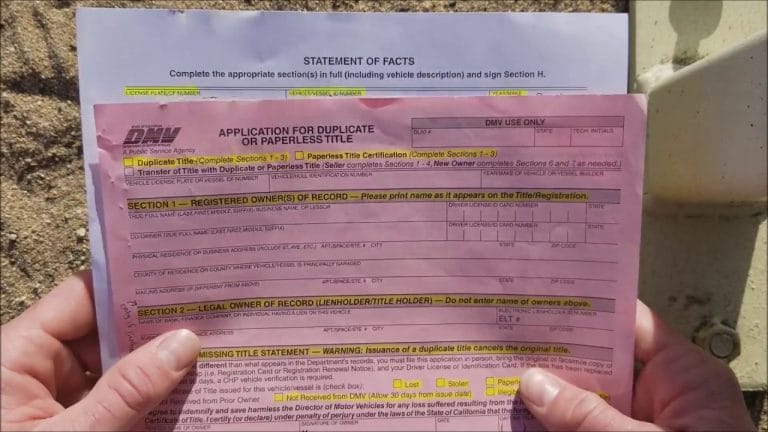How Do Auto Repair Shops Charge for Diagnostics: Insider Tips
Auto repair shops typically charge for diagnostics based on a fixed price for the service, which covers the cost of the technician’s time and expertise in diagnosing the issue. This fee may also include any special equipment used to identify the source of the problem, and it is usually required before any repair work is done.
These charges are necessary to compensate the shop for the trained technicians, specialized diagnostic and repair equipment, and years of experience that go into providing quality service.
Charging For Diagnostics: The Basics
Auto repair shops may charge diagnostic fees as part of the initial assessment costs. These fees can be based on flat rates or hourly charges. The diagnostic fee typically covers the technician’s time and expertise in identifying the issue. It may also include the use of specialized equipment to pinpoint the problem. While some shops advertise free diagnostic tests, these are often contingent on subsequent repair work. Dealerships, in particular, may request a fixed diagnostic fee before commencing any repairs. It’s important for car owners to be aware of these charges and to compare diagnostic test results from different sources to ensure transparency and fairness in pricing.
Diagnostic Tools And Technology
Auto repair shops charge for diagnostics to cover the specialized equipment and trained technicians. The diagnostic fee includes the cost of the technician’s time and expertise, as well as any special equipment used to identify the issue. Some car diagnostic tests may be advertised as ‘free’, but the cost is usually factored into any subsequent repair work. Dealerships are typically entitled to ask for a diagnostic fee, which covers the labor cost to determine the cause of the vehicle’s concern. Overall, the fees reflect the investment in equipment and technology, ensuring quality service for customers.
Technician Expertise And Labor
Auto repair shops charge for diagnostics based on the technician’s expertise and labor. Technicians with certifications and training command higher fees due to their advanced skills and knowledge. Additionally, experience and skill levels also play a significant role in determining the diagnostic charges. Shops often factor in the cost of specialized equipment and the technician’s time and expertise when setting diagnostic fees. It’s important to understand that paying for diagnostics ensures quality service and accurate identification of vehicle issues before any repair work is conducted.
The Real Cost Of Diagnostics
Auto repair shops typically charge a diagnostic fee to cover the cost of a technician’s time and expertise in identifying vehicle issues. This fee may also include the use of specialized equipment. While some shops offer free diagnostic tests, the cost is often incorporated into the repair charges.
| Why do mechanics charge for diagnostics? |
| Auto repair shops use specialized diagnostic and repair equipment, and trained technicians with years of experience. When you pay for diagnostics, you’re paying for quality service. |
| How much does a diagnostic check on a car cost? |
| The cost of a diagnostic test can vary depending on the shop and the complexity of the issue. Some shops may offer free diagnostic tests, but often the cost of the scan is baked into the cost of the repair. |
| What is a diagnostic fee? |
| A diagnostic fee is a fixed price for the service that covers the cost of the technician’s time and expertise in diagnosing the issue. This fee may also cover any special equipment used to identify the source of the problem. Diagnostic fees are usually required before any repair work is done. |
| Is it normal for auto mechanics to charge for diagnostics? |
| Yes, it is normal for auto repair shops to charge for diagnostics. However, it’s important to ask about the cost upfront and to compare prices at different shops before making a decision. |
Diagnostic Fees Explained
Auto repair shops typically charge a diagnostic fee to cover the cost of a technician’s time and expertise in identifying vehicle issues. This fee may also include the use of specialized equipment. While some shops offer free diagnostic tests, the cost is often factored into the overall repair bill.
| What is a diagnostic fee? |
| A diagnostic fee is a fixed price that covers the cost of a technician’s time and expertise in diagnosing an issue with a vehicle. This fee may also include the use of specialized equipment to identify the source of the problem. Standard industry practices dictate that diagnostic fees are required before any repair work is done. |
| Why do auto repair shops charge for diagnostics? |
| Auto repair shops charge for diagnostics because they have invested hundreds of thousands of dollars in specialized diagnostic and repair equipment. They also employ trained technicians who have years of experience and use thousands of dollars worth of tools. Customers are paying for quality service. |
| How much does a diagnostic check on a car cost? |
| The cost of a diagnostic check on a car can vary depending on the shop and the type of vehicle. Some shops may advertise free diagnostic tests, but this is usually only if the customer agrees to pay for any necessary repairs. The cost of the diagnostic test is usually baked into the cost of the repair. |
| Can I compare diagnostic test prices between garages? |
| Yes, customers can compare diagnostic test prices between garages. Websites like FixMyCar and WhoCanFixMyCar allow customers to compare prices and services offered by different garages. |
| Is it normal for auto mechanics to charge for diagnostics? |
| Yes, it is normal for auto mechanics to charge for diagnostics. Standard industry practices dictate that diagnostic fees are required before any repair work is done. |
Free Diagnostics: Fact Or Fiction?
Auto repair shops often charge for diagnostics, but the idea of “free diagnostics” can be misleading. While some shops may advertise free diagnostics, they often include the cost of the scan in the overall repair price. The fees cover the technician’s time, expertise, and specialized equipment used to identify the problem.
| Promotions and Offers |
| Auto repair shops often advertise “free diagnostics”. While this may sound like a great deal, it’s important to read the fine print. Many times, the “free” service is only offered if you agree to have the repairs done at their shop. This can lead to hidden costs and inflated repair bills. |
| Hidden Costs in ‘Free’ Services |
| Additionally, some shops may charge a diagnostic fee even if they advertise the service as “free”. This fee is usually a fixed price for the technician’s time and expertise in diagnosing the issue. The diagnostic fee may also cover any special equipment used to identify the source of the problem. It’s important to ask about any fees upfront to avoid surprises on your bill. |
Navigating Diagnostic Charges
Auto repair shops charge for diagnostics based on the labor cost to determine the cause of the vehicle’s issue. This fee covers the technician’s time and expertise in diagnosing the problem and may include the use of specialized equipment. Diagnostic fees are usually required before any repair work is done. It’s common for garages to advertise free diagnostic tests but the price of the scan itself is usually baked into the cost of the repair. To avoid any surprise charges, it’s essential to ask the right questions and understand your invoice. You can compare the diagnostic results obtained from a free test run at an auto parts store with what you are told by the repair shop to ensure you are paying for quality service.
Insider Tips To Avoid Overpaying
Auto repair shops typically charge for diagnostics to cover the cost of specialized equipment and trained technicians. The diagnostic fee may be a fixed price that includes the technician’s time and expertise, as well as any special equipment used to identify the issue. When negotiating with your mechanic, it’s important to ask for a detailed breakdown of the diagnostic fee. Seeking second opinions from different auto repair shops can also help you avoid overpaying for diagnostics. Some car owners opt to visit an auto parts store for a free computer diagnostic test before consulting a repair shop, allowing them to compare the findings. By understanding the factors that contribute to diagnostic fees, you can make informed decisions and potentially save on auto repair costs.
Frequently Asked Questions
Why Do Mechanics Charge So Much For Diagnostics?
Mechanics charge for diagnostics because they use specialized equipment and have years of experience. The fee covers the technician’s time and expertise in identifying the issue with your vehicle. It ensures you receive quality service.
How Much Does A Diagnostic Check On A Car Cost?
A diagnostic check on a car can vary in cost. It typically ranges from $50 to $100, but prices may be higher depending on the complexity of the issue and the location of the repair shop. It’s important to note that the diagnostic fee is for the technician’s time and expertise in identifying the problem.
Do Garages Charge For Diagnosis?
Garages may charge for diagnosis. Diagnostic fees can vary in price and may sometimes be advertised as “free,” but this is often accompanied by the expectation that you will pay for any necessary repairs. The diagnostic fee covers the technician’s time and expertise in identifying the issue, as well as any specialized equipment used.
It is common for auto repair shops to charge for diagnostics as it helps cover the cost of their resources and expertise.
What Is A Diagnostic Fee?
A diagnostic fee is a fixed price charged by auto repair shops for the service of diagnosing the issue with a vehicle. This fee covers the cost of the technician’s time and expertise in identifying the problem, as well as any specialized equipment used.
The fee is usually required upfront before any repair work is done.
Conclusion
Auto repair shops charge for diagnostics due to the specialized equipment and trained technicians required to accurately diagnose vehicle issues. The diagnostic fee covers the cost of the technician’s time and expertise in identifying the problem, as well as any special equipment used.
While some shops may offer free diagnostic tests, it is often followed by a charge for the repair itself. Ultimately, paying for diagnostics ensures quality service and a thorough assessment of your vehicle.







